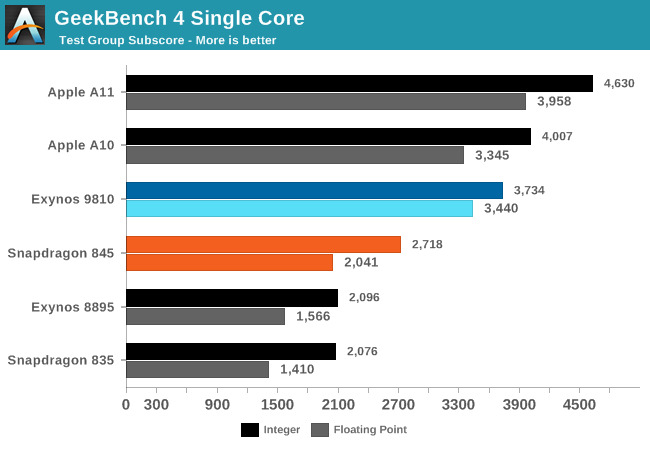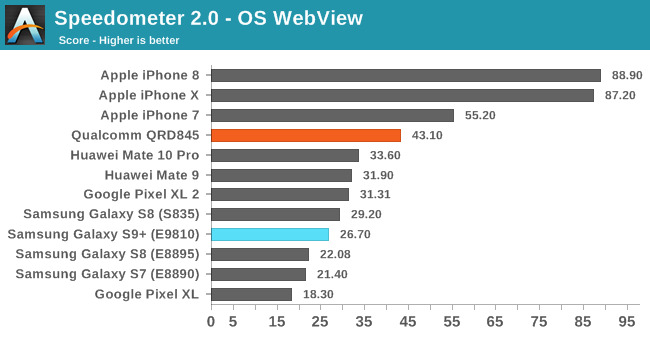This week, Samsung presented the long-awaited novelty in the form of the Galaxy S9 (and S9+) model. This is the model with which Samsung intends to compete with the latest iPhones, which it is directly aimed against. Perhaps this is also why Samsung decided to copy Animoji and release them in "their" version called AR Emoji. One of the most anticipated topics was how the new product will perform in terms of performance. During yesterday, the results of the first tests appeared on the web, and they indicate that the new Samsung is losing to the latest iPhones.
It could be interest you

Inside the new models is the Exynos 9810 processor (10nm octacore in 4+4 configuration, max 2,7GHz), which is connected to 4 or 6GB of RAM (depending on the size of the phone). The first tests show that this processor will not reach the raw performance of the A11 Bionic chips found in the last released iPhones. In some cases, the new Exynos 9810 can't even match the performance of the older A10 Fusion processors found in the iPhone 7/7 Plus.

If we look at the popular Geekbench 4 benchmarking tool, the A11 chip reigns supreme in single-threaded tasks, followed by its predecessor, the A10, and only then the new processor from the Galaxy S9 models. Essentially the same results were confirmed by the WebXPRT 2015 benchmark, which measures the performance of the entire phone, not just the processor part. The distribution of forces was basically confirmed by the measurement using the Speedometer 2.0 tool, where the Samsung fell a little lower.

Foreign editors who test the new product warn that this lower performance may be due to a software error that does not allow the phone to fully utilize the potential of the hardware inside. This information was subsequently confirmed by the company's official statement, in which it was stated, among other things, that the first demonstration models have a modified version of the firmware that is not sufficiently optimized. The novelty from Samsung arrived almost half a year later than the iPhone 8, but it probably cannot match it in terms of performance, even with optimized firmware.
Source: Appleinsider
Performance tests are one thing, real speed is another. If the OS, hardware, drivers are poorly optimized, the theoretical speed can be of no use to you. Watch on YouTube how the half-year-old Xperia XZ premium is catching up with iPhones and Samsungs in terms of app loading speed. He treats them like puppets.
Do you still have to turn off background apps on Android or can you leave dozens of them there like on iOS? When it comes to "real speed", this is quite an important parameter.
The phone comparison application is completely useless, the result is affected by many factors, e.g. the number of photos in the phone, applications, etc., for example, each s8 has a different result